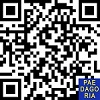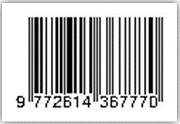ASSESSING THE ENGLISH TEACHERS’ DIGITAL LITERACY COMPETENCIES: A STUDY OF IN INDONESIAN JUNIOR HIGH TEACHERS
Abstract
Abstrak: Kemampuan guru untuk menggunakan sumber daya digital secara efektif akan meningkatkan metode pengajaran mereka dan membekali siswa dengan keterampilan yang mereka perlukan di masa depan. Tujuan utama penelitian ini adalah untuk menilai kompetensi literasi digital guru bahasa Inggris di Pekanbaru. Jenis penelitian yang digunakan adalah mix method. Penelitian campuran adalah pendekatan penelitian yang menggabungkan elemen-elemen dari penelitian kuantitatif dan kualitatif dalam satu penelitian. Pengambilan sampel dilakukan secara purposive sampling. Partisipan penelitian ini adalah 56 guru bahasa Inggris dari SMPN 18 di Pekanbaru. Pengumpulan data penelitian melalui angket, wawancara dan observasi. Kuesioner didasarkan pada Alat untuk menilai literasi digital guru dengan model DigCompEdu dan menggunakan skala yang disukai. Penganalisa data menggunakan SPPS dan analisis tema. Hasil penelitian menunjukkan literasi digital guru pada aspek kesadaran 44,64%, eksplorasi 17,86%, integrasi 19,64%, keahlian 10,71%, kepemimpinan 5,36%, dan inovasi 1,79%. Hal ini memberikan kerangka kerja untuk menilai dan meningkatkan kompetensi literasi digital guru.
Abstract: The ability of teachers to effectively use digital resources enhances their teaching methods and equips students with the skills they will need in the future. This study's main goal is to assess the digital literacy competencies of English teachers in Pekanbaru.The research is a mix method. The sampling was taken by purposive sampling. The participant of the research were 56 English teacher from the 18 junior high school in Pekanbaru The research data collection through questionnaires, interview and observation. The questionnaires were based Tools for assessing teacher digital literacy by DigCompEdu model and on using the liked scales. The data annalist was using SPPS and theme analysis. The result of the research are the teachers’ digital literacy were in awareness 44.64%, exploration 17.86 %, integration 19.64 %, expertise 10.71%, leadership 5.36 %, and innovation 1.79 %. It provides a framework for assessing and advancing teachers' digital literacy competence.
Keywords
Full Text:
PDFReferences
Akayoğlu, S., Satar, H. M., Dikilitaş, K., Cirit, N. C., & Korkmazgil, S. (2020). Digital literacy practices of Turkish pre-service EFL teachers. Australasian Journal of Educational Technology, 36(1), 85–97. https://doi.org/10.14742/ajet.4711
Akbari, T. T., & Pratomo, R. R. (2022). Higher education digital transformation implementation in Indonesia during the COVID-19 pandemic. Jurnal Kajian Komunikasi, 10(1), 52. https://doi.org/10.24198/jkk.v10i1.38052
Biggins, D., Holley, D., & Zezulkova, M. (2017). Digital Competence and Capability Frameworks in Higher Education: Importance of Life-long Learning, Self-Development and Well-being. EAI Endorsed Transactions on E-Learning, 4(13), 152742. https://doi.org/10.4108/eai.20-6-2017.152742
Burton, L. J., Summers, J., Lawrence, J., Noble, K., & Gibbings, P. (2021). Digital literacy in higher education: The rhetoric and the reality Lorelle J. Burton, Jane Summers, Jill Lawrence, Karen Noble, and Peter Gibbings. Business, Management and Accounting, 1(1), 1–19.
Cetin, E. (2020). Digital storytelling in teacher education and its effect on the digital literacy of pre-service teachers. Thinking Skills and Creativity, 39(4), 100760. https://doi.org/10.1016/j.tsc.2020.100760
Coldwell-Neilson, J., A Armitage, J., J Wood-Bradley, R., Kelly, B., & Gentle, A. (2019). Implications of Updating Digital Literacy – A Case Study in an Optometric Curriculum. Issues in Informing Science and Information Technology, 16, 033–049. https://doi.org/10.28945/4285
Elphick, M. (2018). The impact of embedded ipad use on student perceptions of their digital capabilities. Education Sciences, 8(3), 1–12. https://doi.org/10.3390/educsci8030102
Falloon, G. (2020). From digital literacy to digital competence: the teacher digital competency (TDC) framework. Educational Technology Research and Development, 68(5), 2449–2472. https://doi.org/10.1007/s11423-020-09767-4
Ghafur, H. S. (2021). Analysis of ICT Development Supporting the E-Learning Implementation on Nadhatul Ulama Universities in Indonesia. Journal of Social Studies Education Research, 12(4), 121–143.
Haddade, H., Nur, A., Rasyid, M. N. A., & R., A. R. (2023). Quality assurance strategies of higher education in digital era: an Anthropology of education study in Islamic higher education institution. Quality Assurance in Education, 14(4), 65–87. https://doi.org/10.1108/QAE-05-2023-0084
Hinrichsen, J., & Coombs, A. (2013). The five resources of critical digital literacy: A framework for curriculum integration. Research in Learning Technology, 21(1063519), 1–16. https://doi.org/10.3402/rlt.v21.21334
Juhaidi, A., Fitria, A., Hidayati, N., Syaifuddin, Ridhahani, Aseri, A. F., Umar, M., Aseri, M., & Riza, M. (2023). Digital Citizenship of Generation Z in Indonesia: Does Islamic Higher Education Matter? Journal of Higher Education Theory and Practice, 23(13), 165–181. https://doi.org/10.33423/jhetp.v23i13.6325
Kastolani, K. (2019). Digital Reorientation of Islamic Higher Education in Indonesia. AKADEMIKA: Jurnal Pemikiran Islam, 24(1), 151. https://doi.org/10.32332/akademika.v24i1.1618
Khan, N., Sarwar, A., Chen, T. B., & Khan, S. (2022). Connecting digital literacy in higher education to the 21st century workforce Nasreen Khan Abdullah Sarwar Tan Booi Chen Recommended citation : Connecting digital literacy in higher education to the 21st century workforce. Knowledge Management & E-Learning, 14(1), 46–61.
Lea, M. R., & Jones, S. (2011). Digital literacies in higher education: Exploring textual and technological practice. Studies in Higher Education, 36(4), 377–393. https://doi.org/10.1080/03075071003664021
McGuinness, C., & Fulton, C. (2019). Digital literacy in higher education: A case study of student engagement with e-tutorials using blended learning. Journal of Information Technology Education: Innovations in Practice, 18, 1–28. https://doi.org/10.28945/4190
Miranda, P., Isaias, P., & Pifano, S. (2018). Digital Literacy in Higher Education: A Survey on Students’ Self-assessment. Lecture Notes in Computer Science (Including Subseries Lecture Notes in Artificial Intelligence and Lecture Notes in Bioinformatics), 10925 LNCS, 71–87. https://doi.org/10.1007/978-3-319-91152-6_6
Muflihin, A. (2020). Peran Guru Pendidikan Agama Islam Dalam Meningkatkan Literasi Digital Siswa Sebagai Kecakapan Abad 21. TA’DIBUNA: Jurnal Pendidikan Agama Islam, 3(1), 91. https://doi.org/10.30659/jpai.3.1.91-103
Nastiti, D., & Permana, I. A. (2023). The Role Of Teachers In Digital Literacy Development. Pandawa : Pusat Publikasi Hasil Pengabdian Masyarakat, 1(3), 144–153.
Nguyen, L. A. T., & Habók, A. (2024). Tools for assessing teacher digital literacy: a review. In Journal of Computers in Education (Vol. 11, Issue 1). Springer Berlin Heidelberg. https://doi.org/10.1007/s40692-022-00257-5
Poole, A. H. (2015). How has your science data grown? Digital curation and the human factor: a critical literature review. Archival Science, 15(2), 101–139. https://doi.org/10.1007/s10502-014-9236-y
Reisoğlu, İ., & Çebi, A. (2020). How can the digital competences of pre-service teachers be developed? Examining a case study through the lens of DigComp and DigCompEdu. Computers and Education, 156(103), 1–16. https://doi.org/10.1016/j.compedu.2020.103940
Snihovyi, O., Ivanov, O., & Kobets, and V. (2018). ICT in Education, Research and Industrial Applications. CEUR Workshop Proceedings, 2105(October), 50–64.
Spante, M., Hashemi, S. S., Lundin, M., & Algers, A. (2018). Digital competence and digital literacy in higher education research: Systematic review of concept use. Cogent Education, 5(1), 1–21. https://doi.org/10.1080/2331186X.2018.1519143
Suyadi, Nuryana, Z., Sutrisno, & Baidi. (2022). Academic reform and sustainability of Islamic higher education in Indonesia. International Journal of Educational Development, 89(1), 1–11. https://doi.org/10.1016/j.ijedudev.2021.102534
Tejedor, S., Cervi, L., Pérez-Escoda, A., & Jumbo, F. T. (2020). Digital literacy and higher education during COVID-19 lockdown: Spain, Italy, and Ecuador. Publications, 8(4), 1–17. https://doi.org/10.3390/publications8040048
Yu, Z. (2022). Sustaining Student Roles, Digital Literacy, Learning Achievements, and Motivation in Online Learning Environments during the COVID-19 Pandemic. Sustainability (Switzerland), 14(8), 1–14. https://doi.org/10.3390/su14084388
Yustika, G. P., & Iswati, S. (2020). Digital Literacy in Formal Online Education: A Short Review. Dinamika Pendidikan, 15(1), 66–76. https://doi.org/10.15294/dp.v15i1.23779
Zuhdi, M. (2023). Constructing the Concept of Student Well-Being within Indonesian Islamic Higher Education. Religions, 14(11), 1–12.
DOI: https://doi.org/10.31764/paedagoria.v15i3.22961
Refbacks
- There are currently no refbacks.
Copyright (c) 2024 Wirda Ningsih

This work is licensed under a Creative Commons Attribution-ShareAlike 4.0 International License.
Paedagoria : Jurnal Kajian, Penelitian dan Pengembangan Kependidikan
Fakultas Keguruan & Ilmu Pendidikan | Universitas Muhammadiyah Mataram.
_______________________________________________
 | Paedagoria : Jurnal Kajian, Penelitian dan Pengembangan Kependidikan |
______________________________________________
CURRENT INDEXING:
EDITORIAL OFFICE:


















